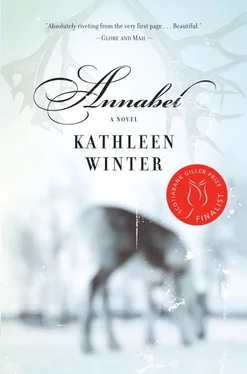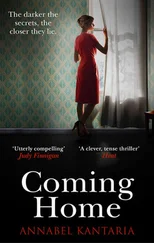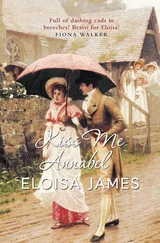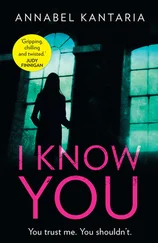Dr. Ho took Wayne from her arms so gently she thought he must love babies, even if he did merciless things to them. He must have bad dreams. He must wake up in the middle of the night just before the part of the dream where he cuts the baby. His wife, if he has one, must have to get up and give him brandy. But maybe not. Maybe he didn’t care. Maybe he only looked like he cared.
Tana, the first nurse, came into the operating room. Tana cared. Anyone could see that about her.
“The phallus…” Dr. Ho said. He pulled Wayne’s penis.
“What the hell are you doing?”
“And it is a phallus, it is—”
“He has to stretch it gently,” Tana said, “to measure the length. He can’t measure it if it’s contracted.”
“He’s hurting her!”
“No. See? She’s not crying.”
“It is the necessary length…” Dr. Ho showed her the gauge. “It barely grazes one and a half centimetres.”
“I can’t even see the numbers. They’re so tiny.”
“This baby can be raised as male.”
Jacinta was silent. Then, quietly: “That’s what his father wants.
TREADWAY WAS SHORT and not handsome, whereas Jacinta had a long neck and tendrils of hair that curled when damp, and a graceful waist, and long, capable, dancerly limbs. She had accepted him because she felt no attraction to men who knew they looked good, men who were tall and knowing, who looked at a woman with a mirthful challenge in their eye that said, I can get any woman I want, but I’m giving you a chance at the moment. Men like this had fallen for Jacinta and had asked her to marry them, but she had waited for Treadway, who was not five feet nine, who was shy, who had to be prompted to go to a dance or enter the log-cutting contest during the winter festival. Once he was dancing, he danced well, riding the music like a kayak, and if he entered a log-cutting contest he cut fewer logs than the winner but he cut them neater and better. She liked the way he appeared hesitant about good fortune, as if he had not been expecting it. She liked the way he chose a good coat and wore it for five years and then chose another one similar to it. She liked the blackness of his hair, and the clean smell of his skin, and the fact that he would never treat her with deceit. She liked loving a man with whom other women were unlikely to fall in love, because she did not want to waste her heart worrying about unfaithfulness in a husband. She had witnessed enough of that between her father and mother.
Still, Jacinta missed the city she grew up in. What she missed most was the Majestic Cinema on Henry Street. It was true that she held clear in her mind the other pleasures of St. John’s: pyramids of oranges in Stokes Market; the slate roofs and chimney pots shining with rain and descending down, down from Lemarchant Road to the harbour; the fact that you could walk outside and see people you knew at any time, in the middle of their real lives; street life; children playing skipping rope; Emma Rhodenizer’s black cat, Spritzer, between her geranium and her lace curtains on the corner of Gower and Cathedral streets; and the steeples everywhere. All these things Jacinta held in an accessible place within herself; they were her most tangible memories. Even the pigeons who lived in the O of Bowring’s department store — she saw their purple necks, their iridescent collars of indigo, their movements fluid yet full of muscular jumps and starts — belonged to her still in Croydon Harbour. Monochromatic Croydon Harbour, where to see colour you had to learn to find red hiding deep inside green, orange hiding in blue. In the city the colour, the life, came shouting out. Human life. In Croydon Harbour human life came second to the life of the big land, and no one seemed to mind. No one minded being an extra in the land’s story.
But among Jacinta’s memories of St. John’s, the cinema reigned. She had loved the red velvet rope that cordoned off the balcony, and the gold-painted pillars swirling with plaster curls, leaves, and Roman faces, with four lions at the top. Though it was only gilt paint and you could see the plaster where the paint had chipped, she had loved it. She had loved the red velvet curtain, and the fact that there was a guest book on a slender pedestal in the lobby, with a pen tied to a gold cord. She had loved the tall rectangular wagons with huge, delicate wheels that the ice cream and popcorn boys wheeled in slowly before the show, and she had loved the show, from the moment its light flickered behind the closed curtain, through every letter and comma of the title and credits, through the searing drama, lit from the side and the back and the front with floodlights that created planes of light and areas of shadowed mystery, and she had loved staring up close at the faces, the gestures, the emotions of the stars onscreen who had no idea that she, Jacinta Hayden, was there.
In Croydon Harbour there was nowhere you could go to get out of the brightness of a winter day or a glaring summer day. There was nowhere you could sit in the shadows, hidden and secret, with your dreams. And if you ran out of dreams or you lost them, there was no silver screen to find them for you again or to whisper you in the direction of new ones. You were on your own in Croydon Harbour. In the realm of imagination you were left to your own devices, and this was what most people in Croyden Harbour wanted. This was why they came here, if they came from other places such as Scotland and England and even America; they came to leave behind the collective dreams of an old world and they came to glory in their own footprints on land that had been travelled only by aboriginal peoples and the wild caribou. And if you were one of the Innu or Inuit in those days, you had no need of cinema. Cinema was one of the white man’s illusions to compensate for his blindness. A white man, for instance, had no idea of the life within stones. Imagine that.
But Jacinta craved the cinema. If she had to list the things she had lost when she made Labrador her home, the Majestic on Henry Street would have been at the top. Not the building, which outside was covered in ordinary blue clapboard and had small wooden windows, but the inside, elevated to Roman glory, and the screen, where the unanswered cries of the heart could live for a while in an element that understood them.
When you came out of the Majestic and walked down Henry Street — one of the steep, friendly hills of St. John’s that open out onto Duckworth and onto the steps that lead to Water Street and the harbour, filled with trawlers and cargo boats and sailboats and men stacking pallets of melons and loading crates of wine — the city looked like a place where dreams would come true. You smelled fresh tar that workers were rolling on the roof of Bowring’s, and smoke from the wine-dipped cigar of a man on his way to the lawyers’ office, and the faint sweetness from melons that had fallen and smacked open on the ground near the boats, and perfume from a woman who had just disappeared around the corner where the newspaper seller sat on his bag in the sun eating his sandwich of hot sausage and onion. You felt young — you were young, because you were not yet eighteen and had not yet gone to Labrador to work, and had not yet met the man you would love but who would never understand the greatest part of your soul, the part that lived on such wisps of romance and faded when they were taken away.
You had not yet thought about how the romance that resided in each of these elements — the melons, the perfume, the rich man with the cigar, the poor man and his newspapers — did not live on its own but must come together with the others in order to exist. The romance was in the whole picture, and each of its parts was only one lonely story, and the story was often sad and without any comfort or answers or poetry or sense, or love.
Читать дальше












